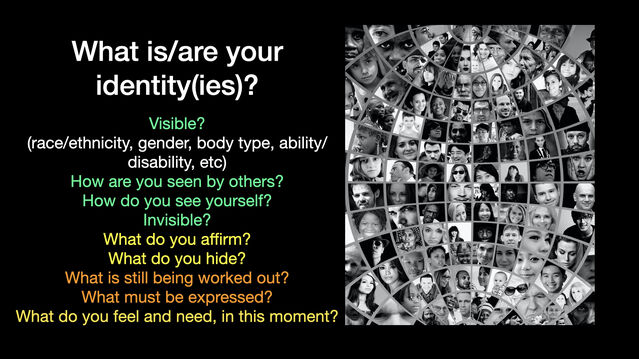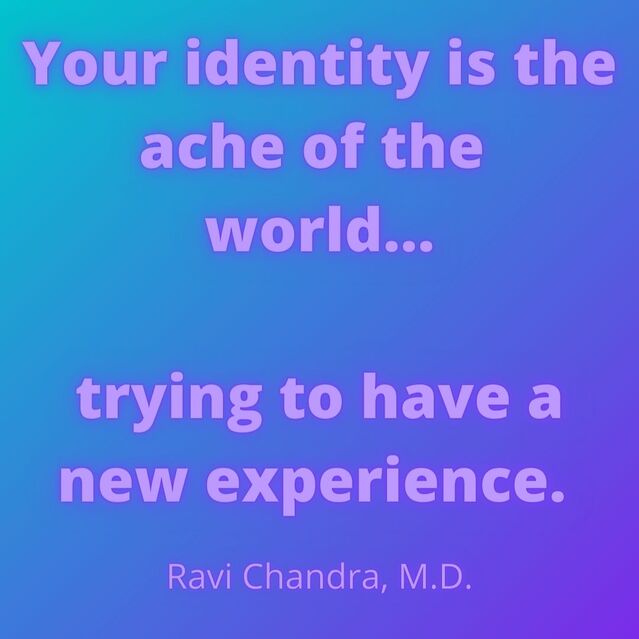Health
What Is the True Self? A Buddhist Psychiatrist's View
Two recent articles question the "true self," but what is the self?
Posted March 28, 2021 Reviewed by Kaja Perina
Key points
- We all have multiple identities
- A Buddhist view of the true self is that which responds creatively to suffering

Two recent articles by Psychology Today experts caught my attention.
Rob Henderson's "Do We Have "True Selves?" focuses on the self of "getting along with others". Based on philosophical writing and research on authenticity, he writes:
What people think of as their true self is the version of themselves that holds a good reputation. The idealized self that makes a positive impression on peers they respect. When they inch closer to that ideal, they will feel good. And report feeling authentic.
Psychologist Rob Whitley's False Self-True Self: The Perils of Living a Lie to Fit In emphasizes how the inauthentic or shadow self is formed by "fitting in" and "going along" impairs mental health. He quotes T.S. Eliot's The Hollow Men:
Between the idea
And the reality
Between the motion
And the act
Falls the Shadow
Whitley concludes:
In sum, the discrepancy between internal desires and actual choices can create a reality that casts a shadow over the lives of many people, which can have ramifications for mental health. This may mean we should all ask ourselves the question: Am I living a lie to fit in?
What is identity?
First of all, we all live with multiple identities. Olga Torkarczuk, winner of the 2018 Nobel Prize in Literature, writes "the postulate of one personality per person is overly minimalistic." We wear different hats, and different parts of ourselves have a drive and will to express themselves. They may each have their own truth. But how these parts of ourselves relate may be the most important factor for mental health and well-being. Here's a sonnet I wrote about identity in 2013:
A collection of parts
I am a collection of parts, a multitude of selves –
They play inside me like precocious elves.
A warrior battles, a peacemaker works
A heart/mind bureau, with tireless clerks.
A woman, a child, an adversary, a friend –
Critics and supporters and actors with ends.
Healer and patient, trickster and mole,
They observe, they comment, they sometimes control.
An emergence, a symphony, a chorus, a blend -
A circus I carry, a circle I mend.
Admirers with whispers, detractors with swords
This collection is work – I’m never bored.
Fractious and playful, serious and fun,
Interdependent we are, from many we’re one.
What is the Buddhist view of self?
Some might distinguish between the little-s self and the big-S Self. In other words, the more self-centered self and the altruistic Self of enlightened Buddha-nature, beyond ego and beyond the "three poisons" of ignorance, hatred, and greed. Ignorance is the opposite of enlightenment - it is the view that the self exists independently and inherently. Enlightenment is the experience and recognition of interdependent reality.
In my book Facebuddha: Transcendence in the Age of Social Networks, I quote a Zen teacher's lesson on the Self:
“The disease is suffering. The world is medicine. So what is the self?” The Zen teacher looked around the room impishly, a slight smile tugging the corners of his mouth. Then suddenly and without warning, he thwacked his staff hard against the wooden platform on which he was seated, startling the gathered audience. He answered his question in a grim and gravelly growl: “Maybe that.”
For me, the lesson implies that the Self is that which responds to suffering - what 'grows' after the thwack of suffering. Life is hard - that's the First Noble Truth. The Self is what one does with that Noble Truth.
So for this Buddhist psychiatrist, the true Self is that which responds creatively to adversity and suffering - and every day of survival, growth, relatedness, expression, affirmation, self-acceptance and self-compassion can be a victory for the true Self.
(c) 2021 Ravi Chandra, M.D., D.F.A.P.A.




